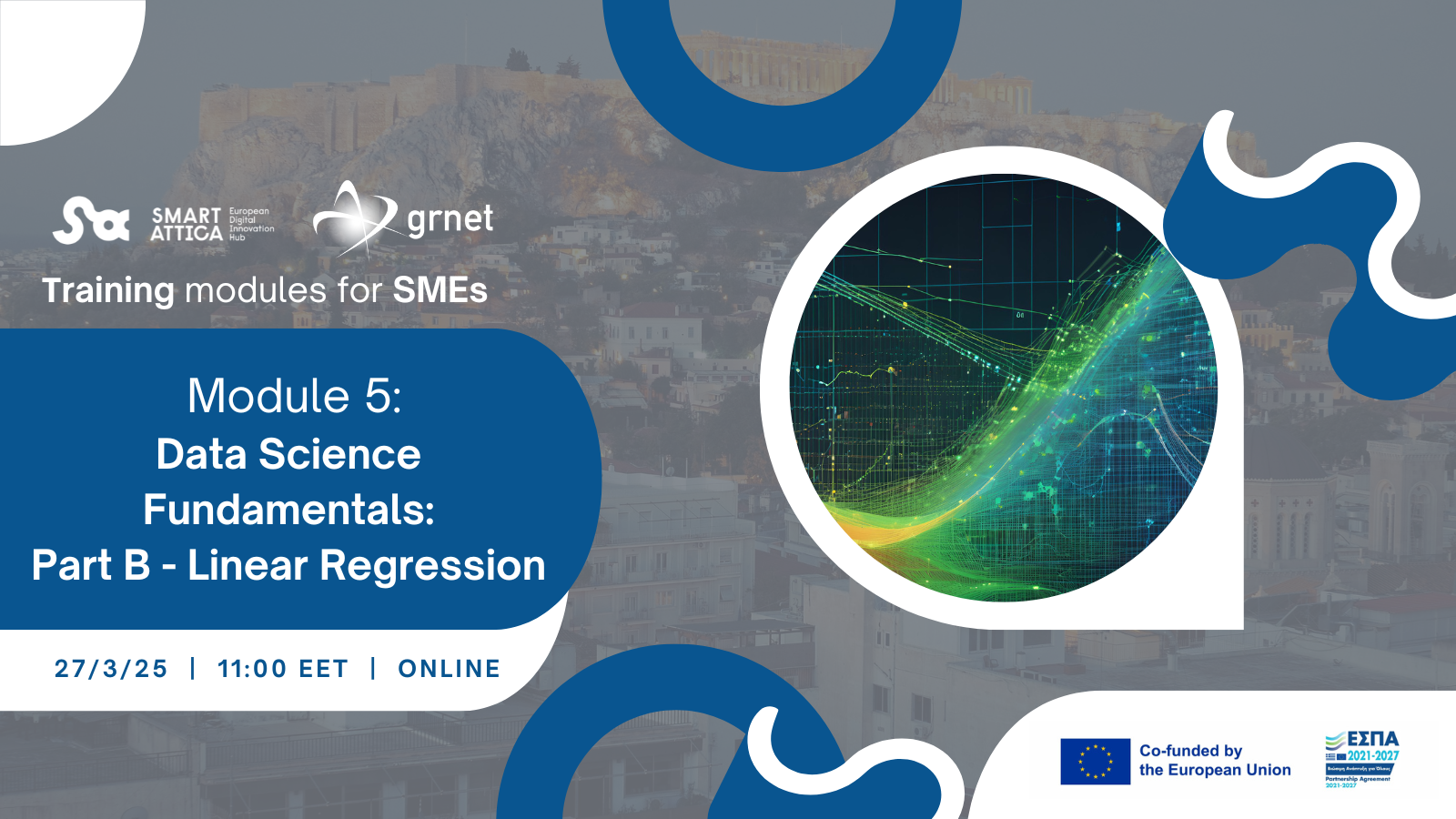

GRNET announced, in the context of SmartAttica EDIH (European Digital Innovation Hub), the 5th Module of Τraining modules for SMEs with the subject "Data Science Fundamentals: Part B - Linear Regression", that took place online on March 27th, 2025.
Date: March 27th, 2025, at 11:00 EET
Location: Online via Zoom
Presentation Languages: Greek
Instructor: Dr. Nikolaos Bakas (GRNET)
Description: In this module, participants delved into the fundamentals of linear regression, a foundational technique in data science for modeling relationships between variables. The module covered theoretical aspects, practical coding exercises, and significant applications in understanding feature-target relationships. Through hands-on activities, attendees builded and validated linear regression models using Python.
Target Audience:
This module is aimed at data analysts, scientists, and software developers interested in leveraging regression analysis to draw data-driven conclusions. It is intended for individuals with a basic understanding of statistical concepts who are new to applying regression techniques in practical settings.
Learning Objectives:
By the end of this module, participants will be able to:
-
Understand the theory and mathematical formulation of the linear regression model.
-
Implement linear regression using practical Python code and libraries.
-
Evaluate the significance and reliability of regression coefficients and model predictions.
-
Calculate relevant statistical metrics such as R-squared for model evaluation.
-
Critically assess the assumptions and limitations of linear regression models.
Prerequisites:
Participants should have
-
Basic knowledge of Python programming.
-
Familiarity with fundamental statistics and linear algebra.
-
Interest in applying data science techniques for business insights.
Note: Please enter your institutional/corporate email when registering.
Indicative Contents
-
Introduction to Linear Regression
-
Overview of linear regression and its role as a baseline model in machine learning.
-
Discussion of robustness to noise and initial insights into feature-target relationships.
-
-
Linear Regression Theory
-
Mathematical formulation of linear regression models.
-
Explanation of the predictors-target relationship and error terms.
-
Overview of matrix representation and solution via least squares.
-
-
Computing Model Coefficients and Evaluation Metrics
-
Deriving and interpreting regression coefficients using matrix algebra.
-
Calculation of R-squared and residuals for model evaluation.
-
-
Significance of Feature Coefficients
-
Understanding regression coefficient estimates and their sampling variability.
-
Using statistical tests to determine the significance of coefficients.
-
-
Practical Coding Example
-
Hands-on example generating random data and calculating regression using Python.
-
Visualization of actual values and predictions through scatter plots.
-
-
Hands-On Session
-
Interactive coding exercise implementing linear regression from scratch and using scikit-learn.
-
Analysis and discussion of results.
-
-
Summary and Q&A
-
Recap of key concepts and methodologies.
-
Open session for questions and further discussion on applying regression in real-world scenarios.
-
The project is co-funded by the European Union. Views and opinions expressed are however those of the author(s) only and do not necessarily reflect those of the European Union or the European Commission. Neither the European Union nor the granting authority can be held responsible for them.
